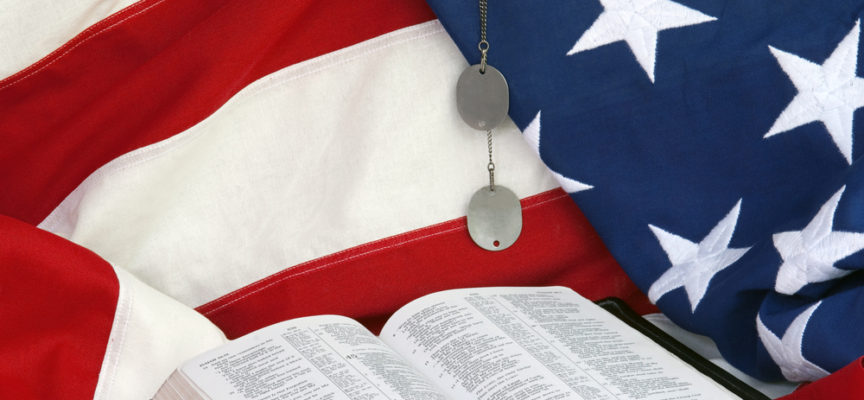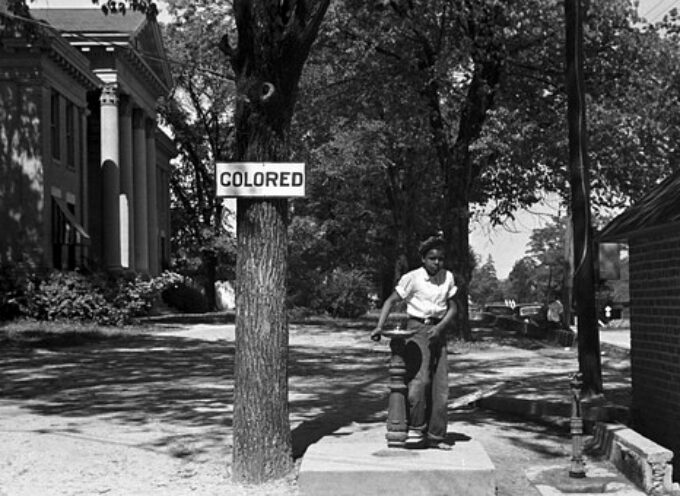When we ask the question, “What is a Christian view of politics?” we can be tempted to jump straight to party platforms and policy issues. That is, of course, how the conversation proceeds on the radio shows and cable news networks: “What is a Christian perspective on immigration reform?” “Why do Christians oppose abortion but support the death penalty?” “How could a Christian support So-and-So for the presidency?”
But if we jump straight to these sort of issues, our perspective will be fragmented and incoherent. Instead of beginning with questions about isolated policy issues and party platforms, it is helpful to ask what the Bible’s master narrative says about politics itself.
That’s right. Even though the Bible is composed of 66 individual books composed by many different authors, its composition was guided by one Divine Author who formed those books together into one story. That story is the true story of the whole world, a story that tells where the world came from, what went horribly wrong with it, and how God will one day set it aright.
If we want to understand a Christian view of politics, therefore, the first thing we need to do is look at clues from the Bible’s main storyline. One way to tell the story is to divide it into four acts—Creation, Fall, Redemption, and Consummation. In this article, I will do exactly that, and will briefly relate each act to the notion of politics.
Act 1: Creation (Politics as a Good Dimension of the Created Order)
In Act 1, God created a good world, and created human beings to reflect his goodness as they lived in his good world. He created this world as a relational and moral world, in which human beings are supposed to live in right relation to God their Maker and, in so doing, they would be able to live morally. The very first couple—Adam and Eve—started out by living morally, in right relationship to God, each other, and the entire created order. Because they were moral beings living in right relation to God, they flourished, and their world was characterized by unbroken justice and universal peace.
God gave the first couple a set of instructions. He gave them a moral command, instructing them to rely upon him for the knowledge of good and evil. He gave them a social command, in effect telling them to build strong families and, by implication, strong societies. He gave them a cultural command, in effect instructing them to make culture, to bring out the hidden potentials of the world he created. He gave them also a regal command, telling them to lovingly manage the good world over which God was king.
Had his world remained untainted by sin, it would have blossomed into a society of men and women who loved God and each other, who lived justly and peaceably. They would have developed art, science, education, sports, business, and even politics, but those dimensions of life would not have been tainted by sin or its consequences. The political realm, for example, might have involved people persuading one another about which side of the road to drive on or which day to hold the Fall Festival; it would not, however, have involved military action or police forces.
Act 2: The Fall (Politics as a Good Dimension Twisted toward Wrong Ends)
In Act 2, the idyllic story goes bad. The first couple opted refused to rely on God for the knowledge of good and evil. Setting themselves up as King and Queen, they sought to determine “the good” on their own. In so doing, they set into motion the corruption of God’s good world. From this point onward, human life in this world could be corrupted morally, socially, culturally, and regally.
Now, to be clear, God’s good world remained structurally good, meaning that it retains God’s created order. The cosmos is not bad in-and-of-itself. It is still structured to allow humans to flourish, to live in right relationship with God, and to allow that relationship to shape the totality of their lives. However, the world is now directionally corrupt, meaning that humans take what God has given them and twist it toward wrong ends. Instead of directing our activities toward God the King, we direct our activities—including our political activities—toward counterfeit gods and false saviors. As a result, society, culture, and politics are now twisted and defiled by injustice, violence, and hatred.
Act 3: Redemption (Politics as a Dimension Christians Can Redirect toward Right Ends)
In Act 3, God responded with a curse and a blessing. Although humanity would now experience spiritual and physical death, God promised to send a Savior who would untwist what had been twisted and cleanse what had been defiled. Throughout the life of Israel and the pages of the Old Testament, God continually reaffirms his promise to send this cosmic Savior.
In the New Testament, we learn that the Savior is Jesus of Nazareth. Through his life, ministry, death, and resurrection, he provided a way for us to be saved—for our sins to be forgiven and our lives transformed. He intends for this transformation to affect us in the totality of who we are, including the public and political dimensions of our selfhood. True religion is heartfelt in that it transforms us in the deepest recesses of who we are; because it is heartfelt, however, it should radiate outward into all that we say and do, including our political words and actions.
Act 4: Consummation (The Political Dimension under the King’s Wise and Loving Rule)
In Act 4, the Savior will return to consummate the salvation he accomplished through his death and resurrection. He will institute a one-world government and a one-party system, so to speak, with him in his rightful place as King and we in our rightful place under his loving and wise rule. The new political community will be centered in a new city—the New Jerusalem—and will be characterized by an unbroken justice and a universal peace. Once again, humanity will be rightly related to God, each other, and the renewed
Conclusion (Doing Politics from the Middle of the Story)
So, how can American citizens put these truths to work?
First, we should work hard to gain a deeper and more profound understanding of the Bible’s storyline. The better we know it, the better we’ll be able to act and speak in a way that pleases the Lord Jesus, who stands at the center of the story.
Second, should remember that we live in an era that is located between Act 3 and Act 4. We should approach politics and public life in such a way that our speech and actions serve as a “preview” of the Kingdom Christ will establish when he returns in Act 4. In other words, when people watch us interact in the political arena, they should get a taste of the justice, peace, and love that will be on display in Act 4.
Third, we should remember that Jesus stands at the center of the Bible’s story because he is the world’s rightful King. He is the one who is finally in charge of this world. Not the free market. Not POTUS. Not the “deep state.” Not the USA, the NATO, or the U.N. None of these entities are final authorities. Jesus is the sovereign authority and greatest power in public life; he is the authority against which even the largest governments and coalitions are ultimately powerless.
For Further Reading:
- The True Story of the Whole World (by: Michael Goheen and Craig Bartholomew). This book traces the Bible’s storyline from Creation to Consummation.
- One Nation under God (by: Bruce Ashford and Chris Pappalardo). In this introductory level book, we provide a 30,000 foot overview of Christianity and politics, including a chapter on politics in the Bible’s story.
- The Good of Politics (by: James Skillen). In this more advanced book, Christian political scientist James Skillen provides a more in-depth and comprehensive treatment of politics in the Bible’s story.
Subscribe
Never miss a post! Have all new posts delivered straight to your inbox.







